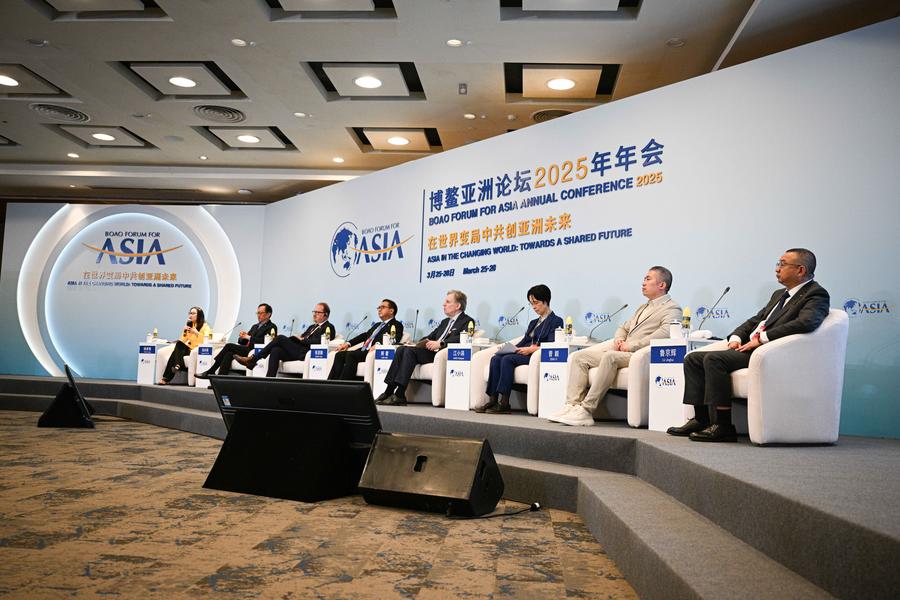Unilateralism benefits no one, experts in Boao stress
By MIKE GU in Boao, Hainan | China Daily | Updated: 2025-03-28 09:59

Far from helping the United States achieve its goal of greater prosperity, unilateralism and trade protectionism pursued by the US government have done harm to both the country itself and the rest of the world, said experts participating in the 2025 Boao Forum for Asia.
Kishore Mahbubani, former permanent representative of Singapore to the United Nations, started his speech with the word "multicivilizational", explaining that this should be a world where there can be many beautiful civilizations, not only one great power. However, US President Donald Trump is walking away from multilateralism, he said.
The US leader is surrounded by people who are very eager to see "America First", said Carlos Gutierrez, former secretary of commerce of the US. Because of this, the world is witnessing the US distancing itself from world institutions, such as the World Health Organization, he added.
"What comes next if the US foreign policy begins to dismantle all the institutions that the US actually helps create?" he asked.
Jeffrey Sachs, an economics professor and director of the Center for Sustainable Development at Columbia University, said Trump's trade policy is surely based on many falsehoods and many basic misunderstandings. As the US is running a large trade deficit, US people have very low savings, he explained.
Sachs stressed: "Tariffs will not solve our fiscal deficit. Tariffs mean tax cuts. That is the mentality of a plutocratic corrupt government."
The Trump administration calls tariffs "protection of the industry", but when the US auto duties were announced, auto share prices of the US fell 5 percent, Sachs said. This will harm the US auto industry, making it permanently uncompetitive, he added.
Countries around the world need to defend multilateralism, as there are 193 member countries in the United Nations, Sachs highlighted.
Speaking of Asia's solutions against unilateralism and trade protectionism, Patrick Foulis, foreign editor of The Economist, said in the longer term, Asia needs to build back more trade agreements and try to replace some of the services that the US has provided — such as a currency, a financial system or a set of technologies that everyone can share around the world.
Cui Tiankai, former Chinese ambassador to the United States, said that the global economy over the past half-century has expanded nearly eight-fold, yet the US' share has remained largely unchanged, continuing to hold the largest portion. However, this appears insufficient to satisfy the ambitions of the US.
The real challenge facing the world is how to ensure that a growing global economy and advancing technologies benefit more nations, Cui stressed. The Asia-Pacific region has many values to uphold, including mutual respect, emphasizing shared interests and resolving differences through peaceful means.
"No matter how others adjust their policies, especially amid today's major global shifts, we in the Asia-Pacific must hold firm to our confidence and leverage our strengths", Cui said.
mikegu@chinadailyhk.com
























